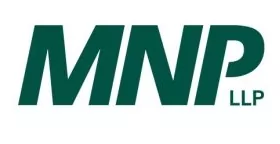As sectors of the economy prepare to return to a post-COVID normal, the impact of the containment policies intended to control the pandemic as well as the related business disruptions will continue reshaping businesses across the globe.
How can organizations be proactive preparing for the post-COVID world just around the corner? Specifically, how can organizations prepare now to protect themselves against fraud opportunities and fraud scams?
As with other global crises - the 2008 global recession, world wars, the Great Depression - business models will transform, some opportunities will be created, others will disappear. Fraud will always find new opportunities and business executives need to consider:
- Have I or my business been affected by fraud during the pandemic? If so, will there be short-term or long-term effects?
- Am I or is my business at higher risk for fraud post-COVID? If so, in which areas and why?
- What are the warning signals that we are at risk?
- What are we doing about any warning signs?
An Era Full of Fraud Possibilities
Fraud scams abound, from internal organization schemes to fraudulent emails and phishing scams. There are many reasons fraud is proliferating; current changes to business models and logistics and the changed way of working across all businesses have created serious upheavals for organizations and individuals. These new scenarios have created the perfect conditions for financial fraud, both in the present and in the future.
It is commonly believed there are three interconnected factors when employees commit internal fraud; motivation, opportunity and the ability to rationalize the fraudulent behaviours.
Financial pressure – Many countries distributed stimulus packages to both organizations and individuals to support their economies during the pandemic. Although these stimulus programs amount to billions of dollars, they are not enough to prevent enormous negative financial impacts on individuals and corporations during stalled or shutdown economies.
Expenses remain and continue to be incurred during the confinement period. Incoming cash flows have become limited or nonexistent as households are operating with reduced income. It is forecasted that their consumption will be reduced or redirected in a post-COVID world, thus impacting businesses further.
As well, the amount of stimulus provided will have to be recovered somehow, likely through higher taxation. These impacts will put significant pressures on organizations and individuals to stay afloat financially. Potentially, this creates a wider gateway for financial fraud.
The latest Association of Certified Fraud Examiners (ACFE) Report to the Nation noted a quarter of fraudsters had "financial difficulties" and 12 percent had "divorce and family problems" as warning signs. Monitoring such behavioural clues and human element red flags will be important for organizations in a post-COVID era.
Rationalization - When survival is threatened, decision making may be altered. A clearly unacceptable behaviour during normal times may now seem acceptable to some. To protect from fraud in this new reality, we need to be prepared for unexpected and undesirable situations that will threaten financial survival and to be proactive in detecting them. Justification for fraudulent action rejected as irrational in the past may appear rational to some in these unprecedented circumstances.
Opportunity – Fraud and corruption threats were taken seriously by most business and institutions before the global pandemic. However, we expect COVID-related disruptions will see organizations aligning and realigning their priorities to accommodate evolving work environments.
After months of partial or stopped operations, organizations are expected to shift their focus to, among others;
- Restarting their operations
- Controlling their cash flows
- Strategy, marketing and business development
- Changes to business models
- Searching for business opportunities created by all these changes.
At the same time, the focus on internal controls and on anti-fraud programs has decreased during the COVID period, which has heightened fraud risk. This may lead to weaknesses in several risk areas, less awareness and action against fraud and increased opportunity for fraudsters.
Emerging Threats
The attention of boards, owners and executives have become re-aligned to manage the impact of the pandemic. Layoffs, both temporary and permanent, have affected the duties of the remaining workforce, including in the areas of fraud risk management and anti-fraud controls.
In the revamp to post-COVID operations, significant attention will need to be focused on any gaps, including both internal and controllable risk, and external threats.
Small to Medium Enterprises (SME) are important potential targets (but everyone is at risk) - SMEs are expected to have trouble getting out of the crisis because of their size and often more limited resources. They can expect fraudsters to take advantage of the confusion and distraction which will surround their efforts to regain stability.
Loans / Mortgages - Organizations may apply for loans and mortgages as a way to support their financial recovery, sometimes with individuals or organizations that are not traditional financial institutions. To avoid falling prey to fraudsters, it is critical to conduct thorough due diligence to review the lender's reputation and review of the contract with legal counsel prior to engaging with the lender.
Government Relief Programs - Government subsidies and programs are evolving rapidly, often with complex application processes. Beware of fraudsters offering to help you complete program applications - for exorbitant fees: fraudsters claiming to be experts already are misappropriating funds and stealing confidential information supplied to complete the application. Check the credentials of any "expert" with the appropriate professional association or work with a trusted advisor before completing an application.
Heightened Third-Party Risk - New regulatory and health requirements initiated because of the pandemic could bring new challenges with third-party vendors and suppliers. As such, organizations will need regular assessments of their contracts and will need to respect the controls in place regarding, amongst others, contract signatures, even if rushed.
New Blind Spots: Remote and digitization of work – The COVID-19 crisis proved a catalyst to many organizations, even if the transition to digital work was well underway. Employees who had been working full time at the office may transition to working part-time from home. Because of the transition, all internal controls and segregation of duties will have to be rethought and designed to accommodate the new working environment and to prevent blind spots.
Some internal controls may have been lost or deferred during the COVID transition period. Attention should be given to reviewing the status of controls if employees performing those duties were terminated or laid off and if their positions were abolished or combined.
Electronic signatures are becoming more common and companies will have to consider how to use them, who will have access to the signatures and the documentation of necessary approvals. Banking and financial controls will also be important to consider as the trends towards paperless will remove a checkpoint for the review of bank accounts. Segregation of responsibilities - who can access the accounts and who reviews them - continues to be critical in preventing fraud.
Too Good To Be True: Pump and dump ─ In the coming months, new products related to the pandemic (such as curative products, cleaning and protection equipment, etc.) will begin to appear, sometimes supported by sensational advertising campaigns showing a panoply of benefits and supported by (false) research. Individuals and organizations may want to invest in these seemingly promising companies, many of which are shell companies intended to increase the price of the shares to resell them at a profit, without their value being legitimate. Apply proper due diligence - confirming the traders' registration with provincial and national securities commissions, working with a known advisor - before making any investment.
Tips to Deter Fraud
Here are a few takeaways to protect individuals and corporations during this transition period:
- Consider fraud risk assessments to identify your most important vulnerabilities
- Reach out and educate employees onfraud alertness
- Monitor behavioural clues and behavioural red flags in your workforce
- Provide anti-fraud training to your managers and employees, preferably by anti-fraud experts / forensic accountants
- Review your procedures and segregationof duties
- Consider the related risks before implementing new procedures
- Make sure your whistleblowing hotlineis operational
- Use skepticism and perform third-party duediligence when entering into new contracts
The content of this article is intended to provide a general guide to the subject matter. Specialist advice should be sought about your specific circumstances.


